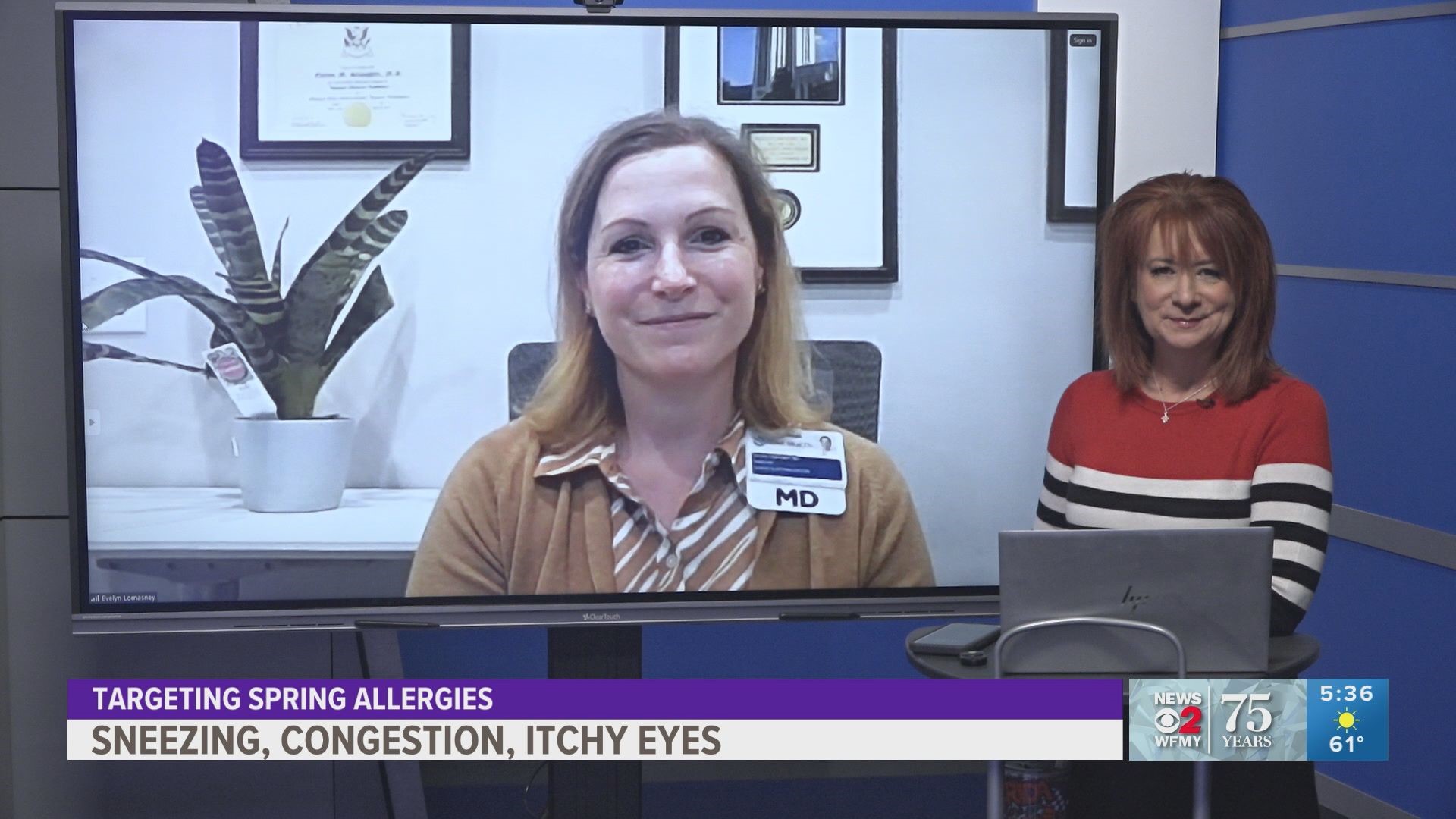GREENSBORO, N.C. — When the weather starts to warm up, heading toward spring, and birds begin to return, many people are afraid to go out during the changing seasons.
Allergies impact millions of people nationwide. Trees and grasses begin releasing pollen starting around March.
We spoke to Dr. Evelyn Lomasney from Cone Health Allergy and Asthma Center for North Carolina about treating your symptoms and staying ahead of the allergens this season.
If you're unsure what causes your reaction, physicians can test your allergies through a small scratch test. There are also blood tests.
Seasonal allergies, or hay fever, can cause a range of symptoms. Maybe your eyes are watery and itchy. Often, sufferers sneeze and deal with congestion.
"Early in the morning, the pollen count is higher, so you want to avoid an early morning, but pollen is released throughout the day," Dr. Lomasney said. "So you want to limit as much exposure during those high pollen count days."
There are many ways to be vigilant and avoid getting stung by too much pollen. Wearing good sunglasses can keep some out of your eyes. Also, reconsider letting your outdoor pets sleep on your bed. They tend to track in heavy amounts of pollen.
"It's really about changing your clothes. There's not much that's going to reduce exposure to how much pollen gets on your clothes. So taking it off so you don't bring it back inside can be very helpful," Dr. Lomasney said.
But sometimes, simply avoiding pollen is not enough or possible to avoid an allergy attack. Dr. Lomasney says newer allergy medicines often have fewer side effects, like drowsiness, than older versions. However, you may have to use them for several days to build up effectiveness.

